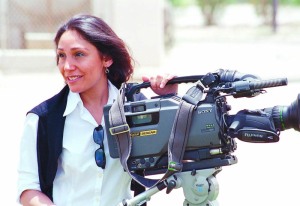“To forgive is not just to be altruistic. It is the best form of self-interest.” – Desmond Tutu
You know at least one person who has had their fair share in life: a difficult marriage, a divorce battle that cost a fortune, completely stripped by their ex and completely worn out at the end of the fight. In general a happening like that can mark a person physically, materially and spiritually.
The other day I bumped into an old client. The last time I saw her she was the kind of person which could fit the description above. The divorce battle had completely imbalanced her life. Bittered, miserable and depressed she literally was carrying her sad situation on her back and her divorce battle made her look ten years older. This time though, her radiant appearance took me by surprise. She looked well, walked straight and was centred. Compared to three years ago, she looked reborn. For a moment I thought she had done a detox-trip and had made daily meditation and yoga part of her life.
I was right; she did all three of them and more. Hardly anything she had built up during her career was left over after her divorce battle. She decided to invest the little that was left for the first time ever in herself and decided to do some inner research. A sabbatical gave her a possibility to make this spiritual journey. The initial goal was to meet her inner self. Beautiful places, extraordinary people and severe challenges paved her way to that encounter with her inner self.
The hardest challenge to overcome on her way to that desired meeting was the most painful at the same time: consciously forgive. Being able to consciously forgiving her ex took away the access for anger and hate. Consciously forgiving has turned her life a 180 degrees and has given her the power to move on as a divorced woman, even though she is still paying for a short remaining period of time half of the debts he made during their marriage without her knowledge of it.

For a long time forgiving has been considered a spiritual matter which could be found in the fields of theology and philosophy. The Aramaic word for ‘forgive’ (‘shbag’) literally means ‘to cancel, to let loose, or to untie’ and is considered a tool for changing a reality in your mind. But more than a decade forgiving has been subjected to research with respect to our mental and emotional well-being. A serious scientific study on forgiveness has provided an abundance of evidence with developed research programs and studies that forgiveness is not only important for spiritual growth but also for our mental an physical health and that forgiveness has a major added value for a healthier, happier and longer life.
It seems that not creating space for forgiving but space created to not forgive is being used to hold on to damaging and pain and continuously reliving it so your whole essence is absorbed with it. Not being able to forgive provides ground for hostility, distrust, cynicism, embitterment, resentment and revenge. Only mentioning, seeing or thinking about the person who has caused the damage and pain is like a red rag to a bull.
As a response the amygdale produces stress hormones to prepare the fight or flee reaction. The level of these stress hormones maintains high as long as the thoughts and feelings of not forgiving insist. In this condition not forgiving becomes an energy and joy eating negative life energy, by choosing to focus on the pain of the past. A condition like this causes innumerable health problems varying for a low immune system, serious heart diseases, high blood pressure, asthma, depression, mental illnesses and prematurely aging.
The good news is that the power to forgive can break this downward spiral and can provide space to heal emotionally and physically.
Forgiveness is a response-ability, the best answer you can give yourself.
About Su Changoe
Su Changoe is the owner of Tara Mediation. Tara Mediation guides couple who are considering a divorce or separation, couples who have decided to divorce and already divorced individual. For these individuals Tara Mediation provides the workshop ‘Claim your spot! – from partner to single’. More information www.taramediation.com
For more information about Tara Mediation, interview requests or images you can contact Su Changoe by phone: +31 (0)6 – 81006515 or e-mail: su.changoe@taramediation.com Also visit the website: www.taramediation.com
Would you like to use this article for a magazine, newsletter or on a website? That is possible, provided that the following information with an active link to the website mentioned is included: “By Su Changoe from Tara Mediation. For more information visit her website: www.taramediation.com.”
The love languages I love to communicate with are being of service and spending quality time. This is why I love spending time writing articles to help people navigate divorce. If you appreciate my work please do express your appreciation in the love languages of words of affirmations (compliments) and / or gifts.
Brighten up my day: follow, subscribe, share or donate. Every quarter I pick a different charity.
Make a one-time donation
Choose an amount
or custom amount
Your contribution is appreciated.
Donate


